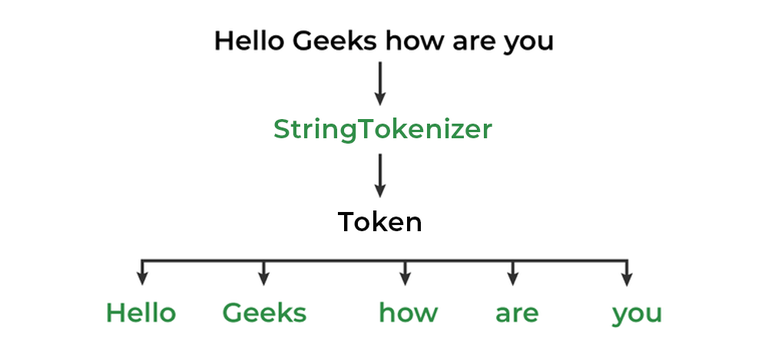Discovering the Advantages of Immutable Strings in Modern Shows Paradigms
In the world of contemporary programming standards, the idea of immutable strings stands as a foundation of durable software application development. The benefits they offer exceed plain comfort; they essentially alter the method information is managed within applications. By embracing immutable strings, programmers can make sure improved data honesty, improved string security, simplified debugging processes, boosted safety and security steps, and effective performance optimization. These benefits function as a testament to the profound influence that welcoming immutability can carry the integrity and efficiency of software program systems.
Improved Data Integrity

By stopping the adjustment of string things, immutability gets rid of the threat of unintentional modifications to the information they hold. This not only enhances the safety of the details however also boosts the dependability of the code that relies upon these strings.
Immutability also sustains more secure multithreading environments, as simultaneous accessibility to immutable strings does not present the threat of information corruption through simultaneous alterations. This home streamlines the procedure of taking care of strings in identical programming scenarios.
Essentially, immutability serves as a safety guard around the data saved within strings, boosting their integrity by ensuring that when specified, their worths stay unmodified throughout the program's execution.

Boosted Thread Safety And Security
Unalterable strings boost the string safety of programs by guaranteeing that once a string item is created, its worth can not be modified. This residential property eliminates the threat of concurrent strings trying to change the same string simultaneously, which might result in information corruption or inconsistent states in the program - Why are strings immutable in Java?. In a multi-threaded environment, where several strings access and manipulate information concurrently, the immutability of strings provides a level of safety and security by ensuring that the data stays the same throughout its lifecycle
Streamlined Debugging Processes
Offered the boosted string safety assisted in by immutable strings, a significant advantage occurs in the world of streamlined debugging procedures. Immutable strings, when created, can not be changed, making it less complicated to trace the circulation of data and identify the source of bugs in a program. This immutability makes certain that strings stay consistent throughout the implementation of the program, lowering the probability of unanticipated modifications that might bring about mistakes.
When debugging with mutable strings, programmers typically come across concerns where a string's worth is modified unintentionally, making it testing to determine the source of an insect. However, with immutable strings, the information stays unchanged, allowing developers to concentrate on evaluating the actual reasoning of the code instead of tracking down where and when a string was changed improperly.
Additionally, immutable strings streamline the debugging procedure by allowing simpler recreation of insects. Since immutable strings do not transform state, designers can recreate and research bugs more effectively, leading to quicker recognition and resolution of problems within the codebase. This streamlined debugging operations ultimately contributes to greater software application high quality and improved general development efficiency.

Raised Safety Procedures
Enhancing data security and strengthening system stability, the utilization of immutable strings in software application applications adds substantially to enhanced security procedures. Homepage Unalterable strings also play an important duty in preventing usual protection susceptabilities such as buffer overflows and SQL shot attacks, as efforts to adjust string information at runtime are naturally limited.
Additionally, the immutability of strings enhances the predictability of program habits, making it less complicated to confirm inputs and avoid unforeseen changes that might endanger safety and security. This predictability simplifies the process of auditing and validating code, enabling designers to identify possible safety technicalities better. Generally, incorporating immutable strings into software advancement techniques not just improves the toughness and integrity of applications yet also reinforces their durability versus safety hazards.
Efficient Efficiency Optimization
When dealing with mutable strings, procedures like concatenation or substring development often result in the creation of brand-new string things, leading to memory expenses and enhanced processing time. By allowing strings to stay constant and stable, unalterable strings facilitate better memory monitoring and caching chances, eventually improving the general efficiency of the software application.
Immutable strings likewise play an important function in multithreaded environments by advertising string safety. Why are strings immutable in Java?. Considering that immutable strings can not be customized when created, they can be shared throughout strings without the danger of unforeseen adjustments, minimizing the need for synchronization systems and improving concurrency. In addition, immutable strings simplify debugging procedures as developers can trust that a string's value will remain consistent throughout the program's execution, removing prospective mistakes triggered by mutable state adjustments. Finally, using unalterable strings not only improves protection yet additionally significantly adds to the reliable efficiency optimization of contemporary software systems.
Final Thought
In verdict, the benefits of making use of immutable strings in modern-day shows standards can not be overemphasized. Boosted information honesty, enhanced string security, simplified debugging processes, enhanced safety and security actions, and effective performance optimization all add to the general efficiency of shows jobs. By incorporating her response immutable strings right into programming practices, designers can benefit from an extra trusted and durable codebase.
Immutability, a key function of strings in programming languages such as Java and Python, ensures that once a string things is created, it can not be altered or changed.Unalterable strings improve the string safety and security of programs by making certain that once a string object is produced, its worth can not be modified. Unalterable strings additionally play a crucial duty in stopping usual protection susceptabilities such as buffer overflows and SQL shot strikes, as attempts to adjust string information at runtime are inherently restricted.
By enabling strings to remain stable and continuous, unalterable strings facilitate better memory management and caching possibilities, inevitably improving the overall efficiency of the software.
Unalterable strings streamline debugging procedures as designers can rely on that a string's value will stay regular throughout the program's implementation, eliminating this post possible mistakes created by mutable state modifications.